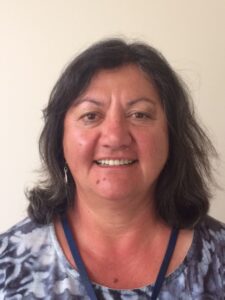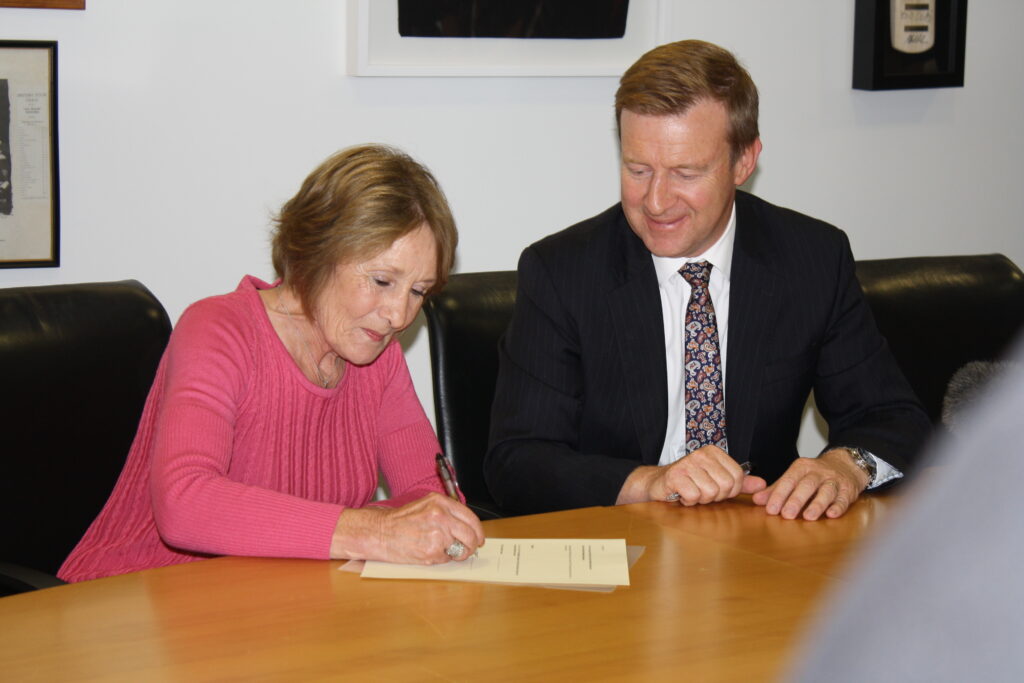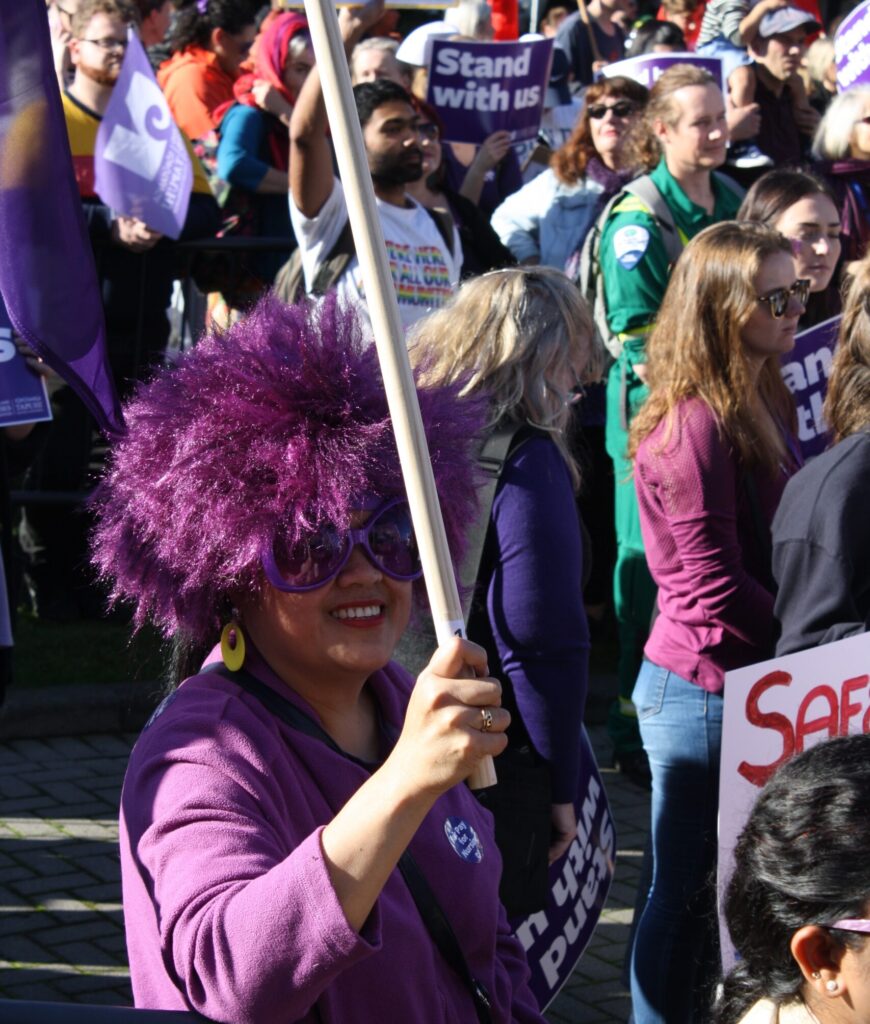NZNO industrial advisor aged care Lesley Harry said the focus was on renewing historic 2017 care and support legislation — which runs out on June 30 — and getting a decent pay increase for members.

“The Government’s only offered 2.8 per cent as an average, and it’s just not enough,” Harry told Kaitiaki Nursing New Zealand, citing the current inflation rate of 6.9 per cent. “We’re calling on all our members to support this campaign, as we will be calling on our care and support members to support other campaigns.”
NZNO along with fellow unions, the Public Service Association (PSA) and E tū, had been in negotiations with the Government, but the signals so far were not encouraging, she said.
“The Ministry of Health (MoH) is saying there’s just simply no more money. We need that legislation renewed, obviously, to protect our current members, but also in particular for new people being employed,” Harry said. “We need to ensure that the value of the settlement is maintained, otherwise, effectively, it falls behind the comparators.”
NZNO was treating the issue with urgency and exchanging proposals with the MoH at present, she said. Unions expected a formal offer and “crunch time” over the next week or two — “but in the meantime, we’ll campaign hard”, Harry said.
“The Ministry of Health (MoH) is saying there’s just simply no more money. We need that legislation renewed, obviously, to protect our current members, but also in particular for new people being employed.”
“We need members to really convince Government of the need for the envelope to be increased to at least the cost of living at this point in time.”
NZNO, PSA and E tū unions together represented many of the estimated 65,000 care and support workers in Aotearoa — a large and predominantly female workforce, Harry said.
In 2017, after nearly two years of legal battles, a historic $2 billion care and support workers pay equity settlement locked in pay increases for workers until July 2022, after finding historic, sex-based discrimination meant they had long been underpaid. It was fronted by Lower Hutt caregiver Kristine Bartlett, and negotiated by NZNO, PSA and E tū.

Employers appeared supportive of the rallies, releasing staff for the day, and other organsations such as Grey Power were also supportive, Harry said.
“It is vital that we have a strong showing at the rallies. Unions have been advocating strongly for increased funding for equity and consistency of pay rates for all our members regardless of where they work,” she said. “In a show of solidarity and power let’s purple up and Maranga Mai! – rise up – on 23 May at a rally near you.”
Rallies are planned for Auckland, Hamilton, Wellington, Christchurch and Dunedin.
Monday May 23
| City | Time | Location |
|---|---|---|
| Auckland | 1:00-2:00pm | Jacinda Ardern’s Electorate Office 658 New North Rd, Morningside |
| Hamilton | 12:30-1:30pm | Meet at Grey Street Kitchen, 335 Grey St (12:30pm). Walk to 475 Grey St. Present petition at Jamie Strange’s electorate office (1pm). |
| Wellington | 1:30-2:30pm | Heretaunga Boating Club, 138 the Esplanade, Petone |
| Christchurch | 1:30-2:30pm | Bridge of Remembrance |
| Dunedin | 1:00-2:00pm | David Clark’s Electorate Office 544 Great King Street North |
| Invercargill | 1:00-2:00pm | Liz Craig’s Electorate Office 49 Kelvin Street |
Tell us which rally you will attend on May 23 here.

The settlement covered both the NZQA training framework for care and support workers, as well as the salary steps attached to either the framework or years of service, Harry said.
NZNO associate industrial services manager Iain Lees-Galloway meanwhile urged members to sign and share a petition in support of care and support workers started by NZNO / PSA / E tū.
“NZNO has 55,000 members alone. Please sign it then share it through your networks and get people to take this simple action in support of carers.”
The rallies are follow the launch of the Maranga Mai! camapign, which is calling for five core fixes across the health system:
- Te Tiriti actualised within and across the health system
- More nurses across the health sector
- Pay and conditions that meet nurses’ value and expectations
- More people training to be nurses
- More Māori and Pasifika nurses

